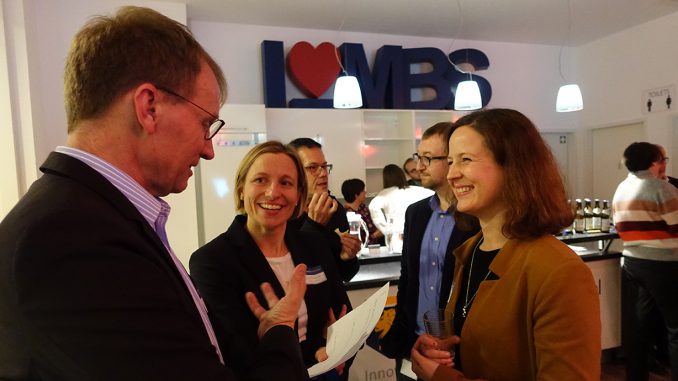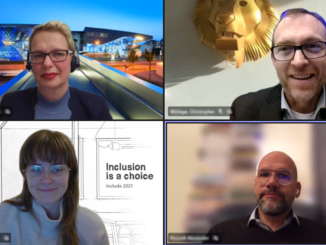
“Should be a role model”, must be able to listen”, “takes responsibility”, “inspires confidence” and “does not put himself at the centre” – these were the audience’s opinions on the introductory question of what a good manager is. But was that always the case? How has leadership changed over the years? And what “new” qualities does a manager need in times of increasing digitalization and globalization?
On the evening of January 29, 2020, Munich Business School’s business lecture “Leading in the Digital Age” invited interested participants to discuss leadership competencies as well as challenges and changes for managers in the digital age.
In her keynote lecture, MBS Professor Ellen Schmid presented various styles of leadership and the resulting leadership qualities throughout the ages: from the belief that leadership is innate and can be exercised in an authoritarian manner exclusively by men, to the concept of transactional leadership with rewards and punishments, to the transformational leadership of the 1980s, which still provides important impulses today. Transformational leadership is defined as a leadership approach in which the common corporate vision and no longer the interests of each individual are in the foreground. The leadership personality acts as a role model and motivates its employees by showing them appreciation and trust. Leadership expert Ellen Schmid stressed that the change in leadership over time is often due to changes in external circumstances. Our digital age, she said, also involves numerous changes to which managers have to respond. Many people feel insecure due to rapid change, greater networking and a changed workload, and feel a need for security and responsibility. The principle of responsibility is reflected in the concept of Servant leadership. A servant leader assumes responsibility, but remains in the background and instead empowers his or her employees. The focus is no longer only on the effectiveness and well-being of the company, but also on the needs of the staff.
The about 50 participants took a positive view of the research overview and discussed in the plenum which styles of leadership are reflected in certain corporate structures such as start-ups or family businesses, as well as their own leadership qualities.
After the presentation, the participants had the opportunity to talk about their own leadership challenges in mixed groups. In a 30-minute workshop, they were asked to describe the challenging situation to their group members and then to gather ideas in the group on how the situation could be improved. The aim of the exchange was to ensure that each person took at least one concrete step in their challenge.
After a conclusion in the plenum, the participants used the easy-going atmosphere at the MBS for networking and further exchange.
Many thanks to all visitors and especially to MBS Professor Ellen Schmid for the inspiring lecture!









